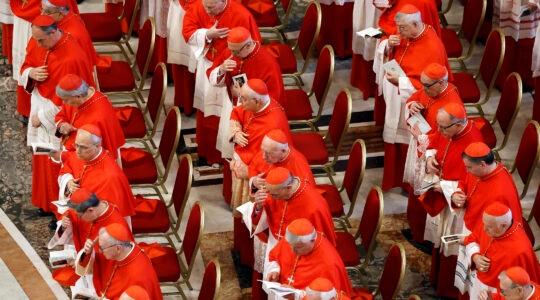Qatar, as JTA explained this past week, has recently thrusted itself into the world of Middle East peacemaking, much to the confusion of the political world. Qatar has traditionally sought maintain good relations with a range of different — and sometimes warring — parties. But never before has it sought such a high-profile diplomatic role.
Since it gained independence from Britain in 1971, Qatar, a tiny country distinguished mainly for its extravagant oil wealth, has been a prodigious host of conferences. Qatar has hosted numerous economic confabs meant to foster business in the region, gatherings to which Israel was often invited. The emirate has also played host to various political conferences on issues of Arab concern, including the Israeli-Palestinian conflict. Israel attended a conference in 1994 on arms control in Qatar, prompting one British lawmaker to note, “How good it is to see Israeli and Arab delegates sitting together here. It augurs well for peace.”
Overall, Qatar has had a mixed approach to Israel, pursuing closer economic ties but wavering on political ones. In 1995, Qatar cancelled a planned visit by Shimon Peres, but proceeded with a multibillion dollar gas deal. In 1996, after the two countries made plans to open trade offices, Qatar pulled out, claiming that Israeli Prime Minister Benjamin Netanyahu did not have a plan for peace.
In 1997, the Foreign Minister of Israel bowed out of an economic conference in Qatar, a conference which both opened and closed with criticism of Israel’s foreign policy. However, in 2000, the Arab League called for all its members to close down any offices in Israel because of a rise in conflict between Palestinians and Israelis but Qatar did not close its office. Similarly, in 2008 when the United Arab Emirates denied Israeli tennis star, Shahar Pe’er a visa to play in a tournament, Qatar in 2011 invited that same player to play in their country, with no visa restrictions at all.
JTA has documented Jewish history in real-time for over a century. Keep our journalism strong by joining us in supporting independent, award-winning reporting.





